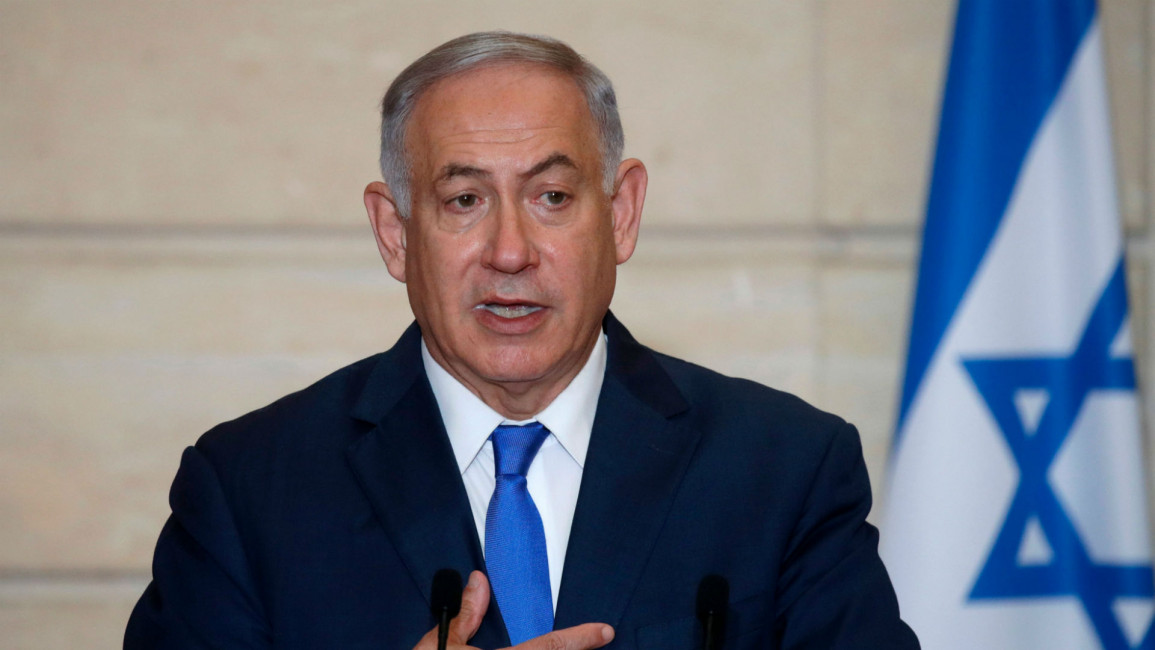Netanyahu vows to annex illegal West Bank settlements if re-elected
Israeli Prime Minister Binyamin Netanyahu pledged Saturday to annex illegal settlements in the occupied West Bank if he wins the upcoming general election.
"I will apply (Israeli) sovereignty, but I don't distinguish between settlement blocs and isolated settlements," he said in an interview to Channel 12 television.
Settlements built on land occupied by Israel in the 1967 Six-Day War are deemed illegal by the international community and their ongoing construction is seen as a major barrier to peace.
Annexation could prove to be the death knell for the two-state solution.
Netanyahu's annexation remark comes just three days before the April 9 general election and could be seen as an appeal to right-wing voters.
In an interview broadcast Friday, Netanyahu said he told US President Donald Trump he would not remove settlements or people as part of a future US peace plan.
"I said there shouldn't be the removal of even one settlement" from the occupied West Bank, Netanyahu told Israel's Channel 13 television.
Washington is expected to unveil proposals for Israeli-Palestinian peace sometime after Tuesday's Israeli election in which Netanyahu is seeking a fifth term.
The Israeli prime minister was asked if he was familiar with the details of the US plan, replying he knew "what should be in it."
Along with settlements, "our ongoing control of all the territory west of the Jordan" River was a further condition set by the Israeli premier for any US-led peace initiative.
Netanyahu said he informed Trump not "even one person" would be evicted from a settlement.
More than 400,000 Israelis live in West Bank settlements as part of its military occupation of the territory, while a further 200,000 live in settlements in occupied east Jerusalem over which Israel has already implemented full sovereignty.
Saeb Erekat, a veteran former Palestinian negotiator, said he held the international community, especially the Trump administration, responsible for Israel's policies.
"Israel will continue to brazenly violate international law for as long as the international community will continue to reward Israel with impunity, particularly with the Trump administration's support and endorsement of Israel's violation of the national and human rights of the people of Palestine," he said in a statement.
While Netanyahu has a close relationship with the US president, Palestinian President Mahmoud Abbas cut off relations with Washington after Trump declared the disputed city of Jerusalem Israel's capital in December 2017.
More recently, Trump recognised Israeli sovereignty over the Golan Heights, a plateau Israel captured from Syria in 1967.
The move was viewed in Israel as a political gift by Trump to Netanyahu who is being challenged by former military chief Benny Gantz.
The Palestinians say the US government's pro-Israel bias meant it could no longer lead peace negotiations between them and Israel, while US officials argue their plan will be fair.
Israeli-Palestinian peace efforts have been at a standstill since 2014, when a drive for a deal by Barack Obama's administration collapsed.



